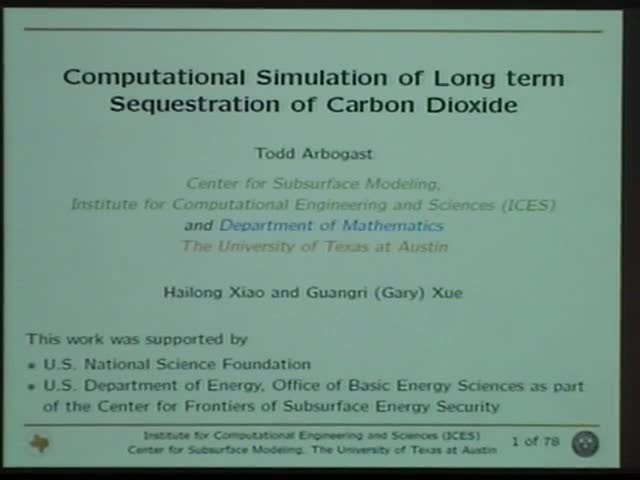Computational Simulation of Long term Sequestration of Carbon Dioxide and other Energy Wastes
Presenter
April 12, 2011
Keywords:
- CO2 sequestration, fossil energy, multiscale methods, heterogeneity
MSC:
- 74G65
Abstract
Currently, mankind extracts most of the fuel for the global economy from underground resources, including oil, gas, and uranium deposits. The byproducts of consuming this fuel enter the atmosphere or remain on the surface. After years of waste build-up, this practice is no longer tenable. Clean technologies that sharply reduce CO2 emissions and other pollutants from power plants are essential bridge technologies on the path towards a sustainable energy future. A critical step will be the ability to cycle fuel byproducts back to their original home: the Earth's subsurface. Applications of this concept include storing CO2 in deep geologic formations and securing radioactive materials in appropriately engineered repositories. It is difficult to design and manage geologic sequestration efforts. Predictive computational simulation may be the only means to account for the lack of complete characterization of the subsurface environment, the multiple scales of the various interacting processes, the large areal extent of reservoirs, and the need for long time predictions. This talk will discuss background issues, and recent work by the author on multiscale methods for computing flow fields in porous media with extreme natural heterogeneities. The methods are suitable for parallel computation through the use of nonoverlapping domain decomposition mortar methods with a restricted set of degrees of freedom on the interfaces. We devise an effective but purely local multiscale method that incorporates information from homogenization theory. We also use this decomposition method approach to devise effective preconditioners that incorporate exact coarse-scale information to iteratively solve the full fine-scale problem.
